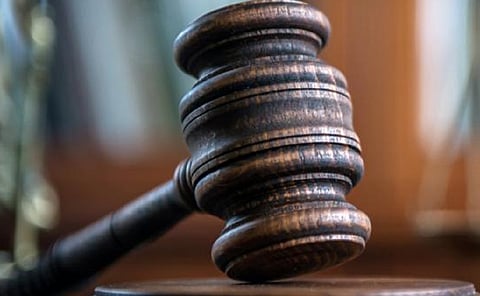

The Supreme Court (SC) on July 16 directed the secretary of Uttar Pradesh’s environment ministry to constitute a committee of senior officials to look into the grievances made by an applicant, Mirza Abid Beg, on the disappearing ponds/lakes/water bodies of Nagina tehsil in Bijnor district. The committee would comprise officials from the revenue and environment departments as well as the Uttar Pradesh Pollution Control Board. The panel is to be constituted within a period of three weeks.
“After examining the old revenue records, the committee would ascertain whether there were any entries regarding the existence of the ponds/lakes/water bodies,” the order said.
The panel will also visit the properties on which ponds/lakes/water bodies were in existence, as per the court’s order. It would thoroughly study the allegations about the disappearance of water bodies. It has also been entrusted to suggest measures for their restoration. Subsequently, the scope of the panel’s work can be expanded to cover many districts.
“It is the paramount duty of the State not only to protect the ponds/lakes/water bodies in the State but also to ensure that ponds/lakes/water bodies, which have been illegally filled in, are restored. It is the Constitutional duty of the State to do so. The Committee appointed by the Secretary, Ministry of Environment, will make a note of this obligation on the part of the State,” the order passed by Justice Abhay S Oka and Justice Augustine George Masih said.
Copies of the committee’s reports should be submitted through the state of Uttar Pradesh. The first report should be submitted by the committee to the SC on or before November 15, 2024, the order said.
The Hyderabad Integrated Solid Waste Management Project at Jawaharnagar is not adequate for processing and utilising Hyderabad city’s entire received waste (8,100 tonnes per day or TPD), stated the action taken report filed by the Central Pollution Control Board (CPCB) on July 15, 2024. The facility can utilise about 43.70 per cent of waste against the generation of 8,100 TPD and the remaining 56.3 per cent (4,560 TPD) is being accumulated in the processing facility as semi-processed waste. The semi-processed waste is being dumped in spaces available in the facility premises, including those between capped cells and also above them, causing additional leachate generation.
The groundwater in and around the dumpsite is contaminated, according to the analysis of all samples monitored during the inspection. An increasing trend in concentration of chemical oxygen demand and total dissolved solids has been observed in the groundwater collected from the area, according to the monitoring carried out by the Telangana State Pollution Control Board. This indicated contamination of the groundwater with leachate.
The CPCB also requested the National Green Tribunal (NGT) to grant three months for the preparation of comprehensive guidelines for leachate management at the dumpsite.
The NGT on July 16 sought a response from the CPCB, among others, on workers losing their lives in illegal coal mines of Gujarat’s Surendranagar district.
The tribunal also sought response from the Gujarat State Pollution Control Board; Union Ministry of Environment, Forest and Climate Change as well as the district magistrate of Surendranagar. All the respondents have been directed to file response before the tribunal’s western zonal bench.
An application was registered suo motu on the basis of a news report, titled Three die of asphyxiation at illegal coal mine in Gujarat, which appeared in The Hindu on July 15, 2024. The matter related to the death of three labourers due to asphyxiation inside an illegal coal mine in Surendranagar district.
The article noted that this was the fourth such incident reported in a year during which 10 people had lost their lives while digging for low-grade coal in illegal mines located in several parts of the district. The coal is used to fuel factories in the state and elsewhere. The news report stated that workers who died after inhaling toxic gas in the mine were not provided essential safety gear.
The article further highlighted that there have been frequent incidents of deaths in Surendranagar district, where illegal mining of coal is rampant. It stated that the proliferation of unregulated coal mines has become a death trap for impoverished workers who get paid Rs 500-Rs 700 a day to work in pits that are 80 to 100 feet deep in order to extract coal using gelatin sticks for blasting, which is completely illegal. The workers are not given helmets, gloves, or any kind of protective clothing.
The article also claimed that hardly any prompt action had taken by the authorities to stop the activity.